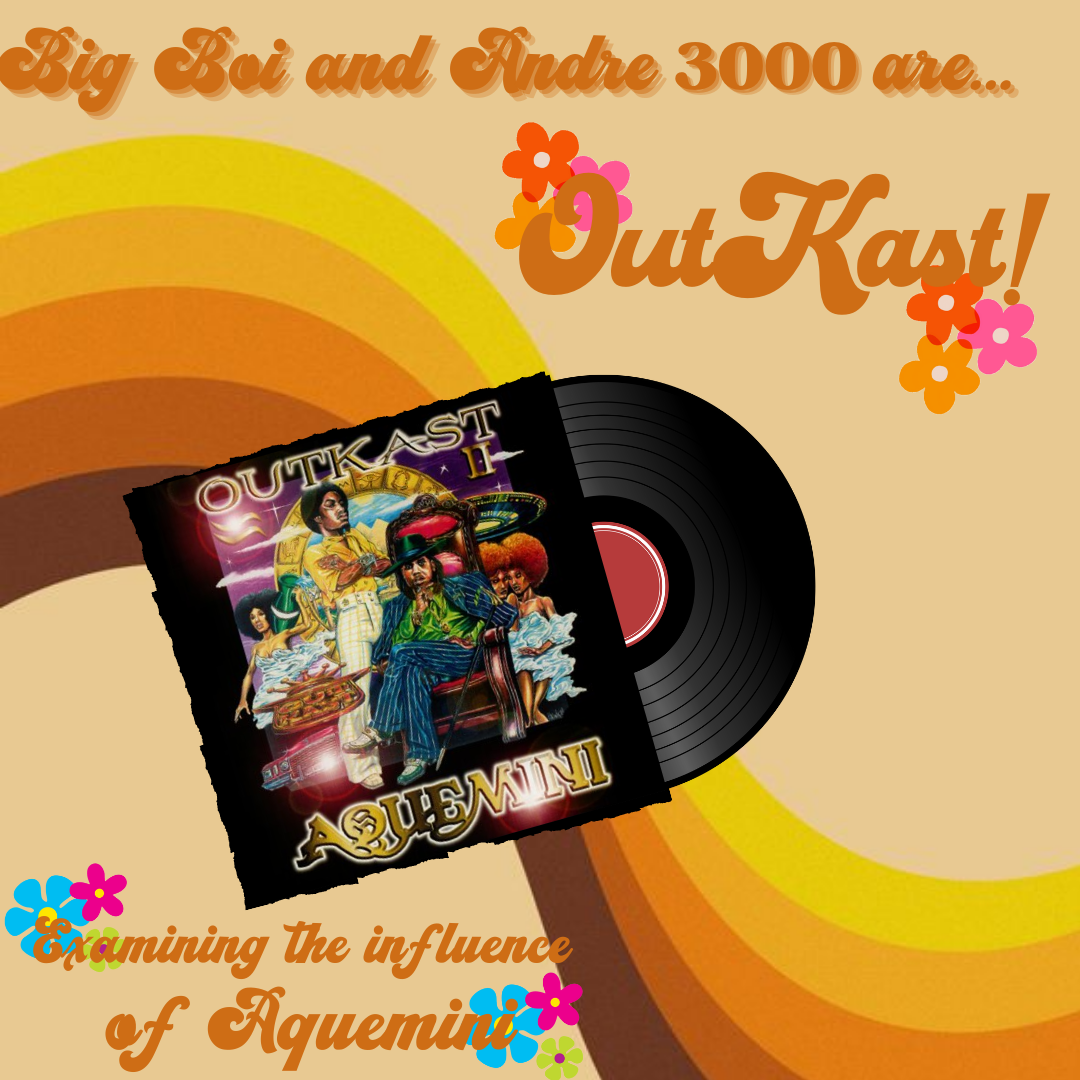One of the most obvious impacts that Outkast had on modern rap was welcoming artists from areas other than California and New York to the party. While there certainly were groups and artists making music outside of the two states, none had reached the mass appeal that Outkast did, a feat that signaled to the average consumer that good music could come from anywhere. Outkast broke the geography of hip-hop allowing new scenes to emerge and have lives of their own. The south became a hotbed for hip-hop after Aquemini resulting in generational talents like Lil Wayne, Killer Mike, and T.I. Years later, a similar renaissance was seen in Chicago with artists like Common, Lupe Fiasco, and Kanye West. While there were certainly great artists from regions outside California/New York before Outkast and the growth of different scenes across the country was inevitable, what the duo did for the south and all other developing regions after must be acknowledged.
Thus far we’ve looked at the impact of Outkast’s instrumentation and regional prowess, but we have yet to discuss potentially the most ground-breaking power the group yielded: The context of their writing. Outkast was the first hip-hop act to leverage their authentic duality as a strength rather than a weakness that needed to be covered up. In 1998, there were specific archetypes that rappers had to fit into to be successful. You could either be A Tribe Called Quest or NWA, De La Soul or Wu-Tang Clan, Talib Kweli or Jay-Z. Andre and Big Boi completely destroyed this idea of a single identity and Aquemini was the album where they truly became the player and poet. Outkast would be the first to tell you that hip-hop was so much more than drugs and guns but then turn around to tell you the importance that both had on the culture.
This duality and authenticity that Outkast pioneered is the reason that hip-hop was able to expand and become the biggest genre in the world. While we love gangsta rap and conscious rap alike, it’s hard for the average person to relate and identify with either sub-genre completely, and if the lines were never blurred both camps would’ve simply gone deeper into their respective niches. Not only was Outkast the first to walk this line, but they were undoubtedly the best at it.
Finally, this examination of influence would be incomplete without mentioning the way Andre’s flow taught the best rappers ever how to spit. Although Biggie had already shown the world how mesmerizing a flow could be by the time Aquemini was released, nobody pushed it further than three stacks. Andre broke every rule of rap resulting in some of the most mind-bending flows hip-hop has ever heard. He seemed to write against the beat instead of with it allowing him to fall into absurd pockets that would pave the way for emcees like MF DOOM, Earl Sweatshirt, and Boldy James.
When speaking about extremely influential works, it’s not rare for an album’s greatest strengths to be the projects that came from it. The most beautiful thing about Aquemini is that well it birthed some of the greatest records in hip-hop history, to this day its greatest strength is not what it became but rather what it is. The record is nearly 25 years old and somehow doesn’t sound dated at all. You can play Aquemini next to any of the great albums to come out in the past decade and it sounds right at home. Outkast is without question one of the most legendary hip-hop acts to ever grace a mic and Aquemini is the project that pushed them to this level. “Even though we got two albums,” Big Boi raps on that album’s “Y’all Scared,” “This one feel like the beginning.”




















































